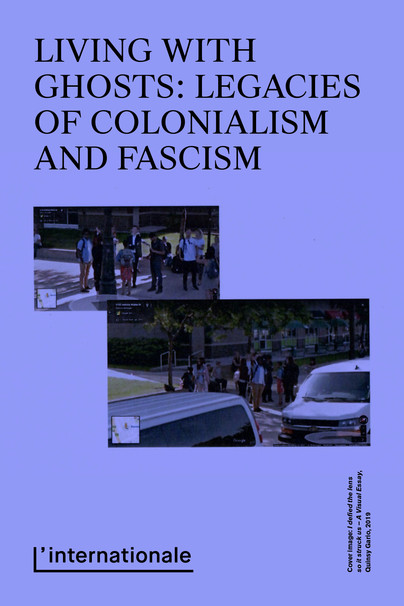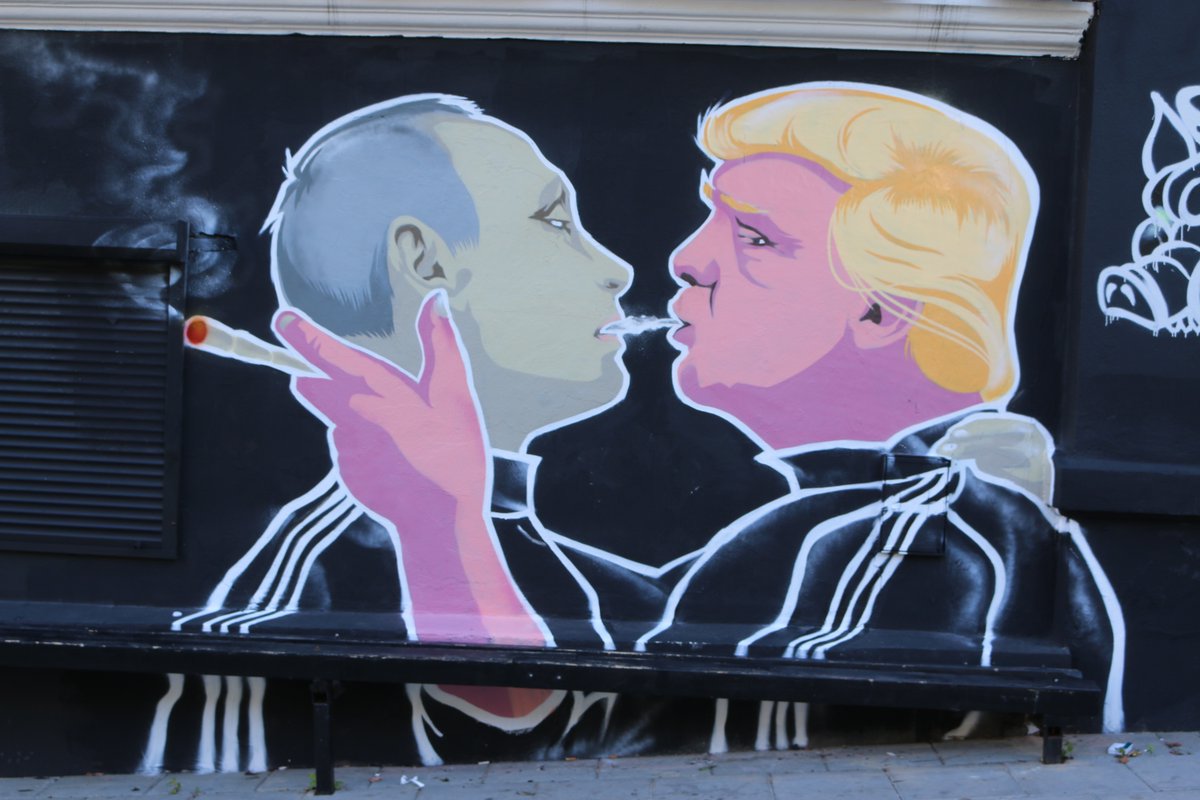L’Internationale (eds.): Living with Ghosts: Legacies of Colonialism and Fascism (2019)
Filed under book | Tags: · colonialism, fascism, nationalism, politics, populism, racism

“Living with Ghosts: Legacies of Colonialism and Fascism is a constellation of essays, conversations and images that point to the manner in which the legacies of colonialism and fascism reverberate in our present conjuncture. The impulse for producing this issue was a question of whether it may be possible to trace the connections between the violences of the colonial project through the horrors of fascism to current forms of racism, identitarianism and populism – what we initially called ‘an arc’ of colonialism-nationalism-fascism.
These shifts are palpable in the contemporary political uncertainties expressed in this collection of texts. Each of the contributors reflect on the specificities of their environment through their lived experiences, through their artistic practices, or reflections on the curatorial climate. They seek to maintain a space for critical engagement and political criticism. Furthermore, this issue considers the layers of historical conditions that inform states of ‘belonging’ and ‘sovereignty’ (even ‘citizenry’ as a debatable proposition) in Europe. What becomes evident from these various contributions is that there is no sudden or surprising development towards the right – too often expressed an ‘inexplicable phenomena’ of contemporary society. They instead address it as a slow and steady movement based on historical events and political terms of reference which have remain unresolved and have again returned, this time through the opportunism advanced and fuelled by the structures of capitalism that connect Europe to Russia and America. Each is a case study that recognises the patterns of violence and inequality evident in the political structures of colonialism and fascism.”
With contributions by Nick Aikens, Jyoti Mistry, and Corina Oprea, Gurminder K.Bhambra, Rex Edmunds and Elizabeth A. Povinelli, Gloria Wekker, Quinsy Gario, Nkule Mabaso, Jyoti Mistry, Jelena Vesić, and Kuba Szreder.
Edited by Nick Aikens, Jyoti Mistry, Corina Oprea
Publisher L’Internationale Online, 2019
Creative Commons BY-NC-SA License
ISBN 9789151931685
190 pages
FIELD, 12/13: Art, Anti-Globalism, and the Neo-Authoritarian Turn (2019)
Filed under journal | Tags: · activism, alt-right, art, art criticism, authoritarianism, far right, politics, populism, protest, social movements

This special issue of FIELD: A Journal of Socially-Engaged Art Criticism focusses on “new forms of cultural and artistic activism that have emerged in response to the global rise of right wing populist and authoritarian forms of government. It features over thirty essays by leading artists, activists, historians, critics and curators who share a commitment to freedom of expression, economic equality, environmental justice, individual identity and mobility, and the expansion of democratic processes.”
Edited by Greg Sholette
Publisher Department of Visual Arts, University of California, San Diego, Winter/Spring 2019
Open access
Cultural Anthropology: Lessons for Liberalism from the “Illiberal East” (2018)
Filed under journal | Tags: · anthropology, central europe, conspiracy, democracy, east-central europe, eastern europe, fake news, geopolitics, illiberalism, liberalism, politics, populism

“The cumulative effects of Brexit, the resurgence of populist politics in Europe, and the election of Donald Trump as president of the United States have given rise to the perception that Western liberal democracies are undergoing profound change, if not a bona fide crisis. Moreover, there is a sense that it is the political liberalism of the post–Cold War period—rather than its far less popular companion ideology of neoliberalism—that finds itself in disarray. As scholars and commentators rummage through their intellectual toolboxes for explanatory frameworks, many are turning to (post)socialist histories and experiences as heuristic devices for making sense of the upheavals in Western politics. In this Hot Spots series, we suggest that the postsocialist transition, as both discursive space and set of practices that attempted to make capitalists out of socialists and liberals out of totalitarians, renders the former socialist world a rich site for understanding the current shifts in the Western political landscape. We aim to make sense of this landscape in a way that is attuned to both long-term processes and to the state of emergency reinforced with each new wave of current events. Even though the ground appears to be constantly shifting beneath our feet, these essays insist that detailed, historically and geopolitically sensitive analysis of actually existing post–Cold War liberalisms is one key approach for making sense of the present.”
Edited by Dace Dzenovska and Larisa Kurtović
Publisher Society for Cultural Anthropology, Apr 2018
Hot Spots series
ISSN 1548-1360

